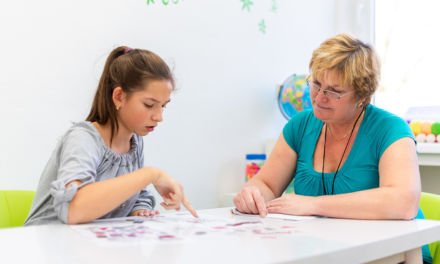Student, parent and teacher engagement has recently become fragile in the education sector with many trying to find solutions that suit all involved. Broken-down relationships and irreparable trust have resulted in children having poorer educational experiences and outcomes. How can we support them, their behaviour, their attendance and their educational journeys?
 EDClass spoke to Sarah Johnson, Director of Phoenix Education Consultancy and President of PRUsAP to discuss strategies we can implement to improve solutions. Sarah creates content and resources for children and teachers and works on school improvement and student support in terms of emotionally based school avoidance, anxiety and other medical needs. She has also written several books including – ‘Behaving Together in the Classroom A Teacher’s Guide to Nurturing Behaviour’. Sarah focuses on social, emotional and mental health offering practical guides to primary and secondary school teachers.
EDClass spoke to Sarah Johnson, Director of Phoenix Education Consultancy and President of PRUsAP to discuss strategies we can implement to improve solutions. Sarah creates content and resources for children and teachers and works on school improvement and student support in terms of emotionally based school avoidance, anxiety and other medical needs. She has also written several books including – ‘Behaving Together in the Classroom A Teacher’s Guide to Nurturing Behaviour’. Sarah focuses on social, emotional and mental health offering practical guides to primary and secondary school teachers.
How we can engage students
Student engagement has been a prevalent issue recently with many trying to find the best solution for each child. Unfortunately, every child is different, so it’s important to alternate with a variety of methods until a strategy fits. Sarah said:
“We need to look at the wider school system and have an understanding of what might be driving behaviour. I think lots of conversations around behaviour look at the child on an individual basis. I think you need to take a wider view look at what’s going on in a school environment.
We can then look at if there is a particular need for that child. We need to make them feel safer and part of the community and address their learning difficulties or needs. Is there something going on in their family environment or do they have good relationships with their peers or staff where they can express their feelings? As teachers, we need to say when their behaviour isn’t acceptable and this is how we would like you to behave and to support those routines as well. To say that there’s one cure for behaviour I think would be a mistake.”
Students need a sense of belonging where they can thrive in an environment that suits them. Alternative provision can be transformative for some students once there is a platform that is implemented for them that provides real impact. Make sure to constantly ask students how they are feeling, what motivates them and what they need to be able to progress. Sarah added:
“I think everyone wants to feel welcomed and valued and that they belong in a school community. I think if children don’t feel like that, they’re going to behave in ways that actually being pushed out feels better. It’s about creating a space which feels safe enough for children to attend and that they feel the value of it.”
How we can engage parents
Recently, there has been a breakdown between parents and the education system and we must find ways to overcome this barrier. Sarah stated:
“I think it’s about seeing the school, the alternative provision or the relationships that we have with parents as being a key one to support their child so they enjoy education. We need to value parent voices, but it’s also about building opportunities for something to be different for that child.
Often parents are disenfranchised because schools will only ring complaining about their child’s behaviour, so we need to shift that and have positive conversations rather than just framing it with a negative. I think school attendance is a key issue and there are conversations about the social contract between parents and schools being diminished because of COVID. I think fostering those kinds of relationships where people feel able to express themselves and be heard is really important.”
Parents have become disengaged because they feel that their child’s needs aren’t being addressed appropriately. Creating a school environment where parents also feel inclusive can provide real benefits for everyone involved. Simultaneously, once a parent is becoming more involved with their child’s education, attendance figures will rise and the educational experience can be more positive. Read our previous blog on engaging disenfranchised parents here.
How we can engage teachers
Another area where engagement is needed revolves around teachers, especially newly qualified teachers. Increased stress and workload and a tougher work/life balance can prove to be difficult for many teachers resulting in several strikes. We need to support teachers as they embolden children to reach their full educational potential. Sarah stated:
“We need to circle back and find out what’s functioning and keep on changing plans when they aren’t working. We need to focus on having a plan of action, reviewing and making sure we are returning to the place in hand if things aren’t working.”
Teachers need strategies, solutions and platforms that accommodate both their needs and their students. This can be using hybrid approaches for school refusers or reintegration strategies for students not attending to alleviate any added work pressure. In addition to this, there can be useful platforms that schools can use on-site to reduce the workload pressure thanks to the expansion of EdTech in recent years.
Using an online model
Online learning and provision, like EDClass, can allow students to work at their own pace in a comfortable setting where they can focus on their education. Sarah said:
“I think all models should be exhausted to support a child’s attendance. Lots and lots of children struggle with face-to-face relationships and can’t leave the house for lots of different reasons. They might have emotional-based school avoidance, significant anxiety, they might have an obsessive-compulsive disorder, or actually, some of their behaviours put them at risk.
For some children, being at home is safer and then they can concentrate on the academia and I think from that end, online is being used really well. I think when platforms offer a range of resources, a range of ideas, as well as having the kind of pastoral support as well, I think that’s what works well.”
Online learning can allow students to re-engage with their learning and allow their parents to become more involved with their child’s learning. Especially for those who have adopted a working-from-home model it can ensure that they can keep on top of their child’s education to ensure they are being properly informed. In addition to this, teachers can benefit due to the decrease in workload and being able to focus on other areas within their school.
If you’d like to learn about how an effective online alternative provision can assist call EDClass on 01909 568338, send an email to mail@edclass.com or enquire for more information here.










